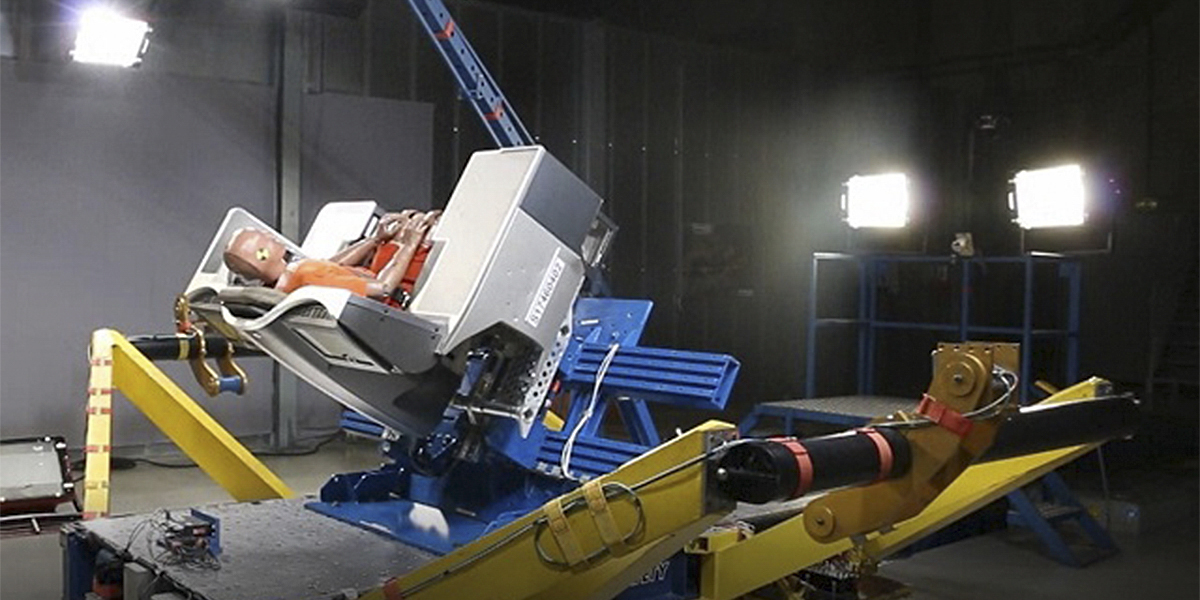GB T30512 Hazardous Substance Restriction Passive Safety Test
The GB/T 30512 standard is a critical part of China's regulatory framework aimed at ensuring the safety and environmental friendliness of automobiles. This passive safety test focuses on the restriction of hazardous substances, which are known to have adverse effects on human health or the environment. For quality managers, compliance officers, R&D engineers, and procurement teams in the automotive sector, this service ensures that vehicles meet stringent national standards for hazardous substance restrictions.
The GB/T 30512 standard applies to all types of automobiles including passenger cars, commercial vehicles, motorcycles, and bicycles. The passive safety systems tested under this standard are designed to protect occupants from injury in the event of a collision or other accident. These systems include airbags, seat belts, crumple zones, and other components intended to mitigate the impact forces during an accident.
The test involves several steps that ensure the integrity and effectiveness of the passive safety system under specified conditions. The first step is the preparation of the test specimen, which typically includes a vehicle or a representative component of the safety system being tested. This could be as simple as a single airbag module or as complex as a full-scale crash dummy.
The next step involves setting up the testing environment according to specified parameters outlined in GB/T 30512. The test conditions replicate real-world collision scenarios, including speed, angle, and type of impact. Once set up, the test is conducted under controlled conditions that simulate a severe frontal crash. During the test, the passive safety system's performance is monitored for its ability to deploy correctly and protect occupants.
After the test, detailed data is collected and analyzed to assess the effectiveness of the passive safety systems in restricting hazardous substances. This includes measuring the levels of harmful materials such as lead, mercury, cadmium, hexavalent chromium, polybrominated biphenyls (PBB), and polybrominated diphenyl ethers (PBDE) that may be released during a crash scenario.
The results are then compared against the specified limits set forth in GB/T 30512. If the levels of hazardous substances exceed these limits, it indicates potential risks to both occupants and the environment. Compliance with this standard ensures not only safety but also environmental responsibility, which is increasingly important as global regulations evolve.
The detailed testing process outlined above is crucial for ensuring that automotive manufacturers meet the high standards set by GB/T 30512. By adhering to these stringent requirements, automakers can confidently launch vehicles into markets where this standard applies and avoid costly recalls or product bans.
Scope and Methodology
| Test Parameters | Methodology Details |
|---|---|
| Collision Scenario | Replicates a severe frontal crash at specified speed and angle. |
| Specimen Preparation | Involves the use of representative components such as airbag modules or full-scale crash dummies. |
| Data Collection | Includes monitoring deployment times, effectiveness, and emissions of hazardous substances. |
| Analysis | Compares collected data against specified limits in GB/T 30512. |
The methodology for the GB T30512 Hazardous Substance Restriction Passive Safety Test is rigorous and comprehensive. It ensures that the passive safety systems meet not only functional requirements but also stringent environmental standards. This holistic approach provides manufacturers with reliable data they can use to improve their products.
Eurolab Advantages
At Eurolab, we offer unparalleled expertise in conducting GB T30512 tests. Our state-of-the-art facilities and experienced technical staff ensure that every test is conducted with precision and accuracy. Here are some of the key advantages:
- Comprehensive Testing Capabilities: We can handle a wide range of test scenarios from basic component testing to full-scale vehicle crashes.
- ISO/IEC 17025 Accreditation: Our labs are fully accredited, ensuring that all tests meet the highest international standards.
- Experienced Personnel: Our team consists of highly skilled professionals with extensive experience in automotive testing and compliance.
- Advanced Equipment: We utilize cutting-edge equipment to ensure accurate and reliable test results.
- Comprehensive Reporting: Detailed reports are provided that include all relevant data, analysis, and recommendations for improvement.
- Rapid Turnaround Times: Our efficient processes allow us to deliver results quickly without compromising on quality.
- Supportive Consultation Services: We offer guidance throughout the testing process, ensuring that manufacturers understand every aspect of the standard.
- Global Network: With connections across multiple regions, we can provide insights and support for international standards as well.
Choosing Eurolab means choosing a partner committed to excellence in automotive testing. We are dedicated to helping our clients meet their regulatory requirements while enhancing the safety and environmental impact of their products.
International Acceptance and Recognition
- China: GB/T 30512 is a mandatory standard in China, ensuring that all vehicles sold within the country meet strict hazardous substance restrictions.
- European Union: While not directly part of EU regulations, many European manufacturers and suppliers adhere to this standard due to its stringent requirements.
- United States: Some U.S. states have adopted similar standards or incorporate them into their own regulations.
- Japan: Japanese automotive companies often comply with international standards like GB/T 30512 as part of their global quality assurance processes.
- Korea: Similar to the U.S. and Japan, many Korean manufacturers follow these guidelines for their global product lines.
- India: India is increasingly adopting international standards including those from GB/T 30512 in its automotive industry.
The widespread adoption of GB/T 30512 highlights its significance in the global automotive market. By adhering to this standard, manufacturers can ensure their products meet high safety and environmental standards across multiple markets.





